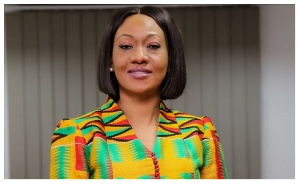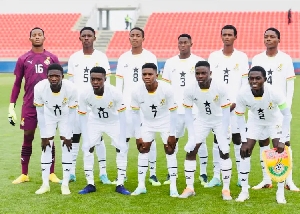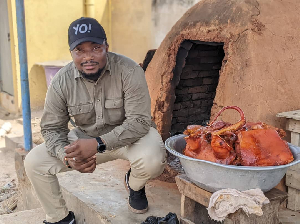- Home - News
- TWI News | TV
- Polls
- Year In Review
- News Archive
- Crime & Punishment
- Politics
- Regional
- Editorial
- Health
- Ghanaians Abroad
- Tabloid
- Africa
- Religion
- Election 2020
- Coronavirus
- News Videos | TV
- Photo Archives
- News Headlines
- Press Release
General News of Monday, 29 April 2024
Source: www.ghanaweb.com
Electoral Commission shows cost-saving measures, disproving IMANI's claims of wasteful spending
Contrary to IMANI-Africa's claims of engaging in wasteful procurement expenditure, the Jean Mensa-led Electoral Commission has proven that it saved the state millions of dollars.
In a statement dated April 26, 2024, and signed by Fred Tetteh, Deputy Director of the Electoral Commission in charge of Monitoring and Evaluation, the EC noted that Bright Simons of IMANI and his CSO have persistently attempted to publish misinformation about the Commission's current leadership.
According to him, a recent claim by Mr. Simon's claim that the current administration wasted money by choosing to buy new Biometric Verification Devices (BVDs) in 2020 instead of finishing the refurbishment of old BVDs that began in 2018 is inaccurate.
Setting the records straight on the matter, Mr Tetteh noted that the previous administration of the Commission in 2018 started processes for the refurbishment of Biometric Verification Devices (BVDs) and Biometric Voters Registration Kits (BVRs), a Data Centre and Security enhancements for a total cost of $56 million.
He noted that the project was purposefully geared towards the conduct of the 2018 referendum and District Level Elections, after which the Commission intended to procure new devices.
However, upon assumption of office, the current administration saw it prudent to cancel the process and opt for a minimal maintenance arrangement.
"In June 2018, the previous administration of the Commission had budgeted and received approval to invest US$56 million for the refurbishment of Biometric Verification Devices (BVDs) and Biometric Voters Registration Kits (BVRs), a Data Centre and Security enhancements under the voter registration and voter verification projects.
"The contract was specifically geared towards the conduct of the 2018 referendum and District Level Elections (DLE). The Voter registration project included the refurbishment of 1.670 BVR kits and the procurement of 1,000 new BVDs, while the Voter Verification Project included the refurbishment of 46,200 BVDs and the acquisition of 10,000 new BVDs.
"However, the current administration of the Commission made a strategic decision to cancel the contract for the total refurbishment and the procurement of new BVDs, opting for a minimal maintenance arrangement.
"In 2020, based on the experience with the equipment in the 2019 DLE, the current Commission applied and received approval from the PPA to acquire new BVDs, BVRs, a Data Centre and a Data Recovery Centre," the statement said.
Comparing details of the cancelled 2018 procurement budget to the procurement done by the Commission in 2020, Mr Tetteh noted that the current administration saved the state money by strategically opting to buy new equipment.
"For the 74,500 new BVDs and 8,500 new BVRs, the current administration of the Commission saved this country an amount of US$57.918,270 compared to the prices at which the previous administration was going to pay for new BVDs and BVRs. Please take note that the cost of refurbishing one BVR kit, as approved in 2018, was $3,565, while the cost of a new BVR Kit purchased by the current administration in 2020 was $3,423.38. As Ghanaians, would we have preferred to refurbish old BVRs at a unit cost higher than a new one?
"It is also worth noting that the previous Commission earmarked USS15 million for the data centre and biometric system upgrade, whereas the current administration spent USS6,161,869.69 for a new data centre, a new data recovery centre and related services, saving the country US$9 million," the Commission said.
Thus, the Commission rejected IMANI's claims that it spent $150 million on the new BVDs and BVRs.
According to the Commission, the new administration spent US$68,661,912.67 on 74,500 BVDs, 8,500 BVRs, and a new data and data recovery centre.
In another release, Mr Tetteh vehemently refuted Bright Simons' claims that the Commission had engaged in a secret venture of sneaking out the obsolete devices for recycling at a loss to the State.
According to the Commission, processes leading to the auctioning and recycling of devices were conducted transparently and legally.
"The Commission categorically rejects the allegation of sneaking out thousands of devices for recycling at a loss to the State. Such statements are not only false but are designed to mislead the public and cause disaffection for the institution and its leadership.
"As indicated earlier, the Original Equipment Manufacturers and the Managers of the Commission's biometric infrastructure, HSB Identification BV and STL, respectively, informed the former Commission in writing about the obsolete nature of the Commission's Biometric infrastructure.
"They indicated that the biometric equipment and other equipment in the Data Centre had reached the End of Life- meaning they could no longer be serviced as parts were no longer available.
"Indeed, HSB Identification BV., in a letter to the Commission, distanced itself from the planned repairs of the BVRs. Based on these reports and following our experience with the equipment in the 2019 District Level Election (DLE), this Commission, in consultation with relevant agencies and in compliance with legal procedures, auctioned the obsolete 2012 equipment.
The EC said, "The auction was conducted transparently, and all legal procedures were strictly adhered to. The proceeds from the auction were duly deposited in the Consolidated Fund."
View the documents shared by the EC below:
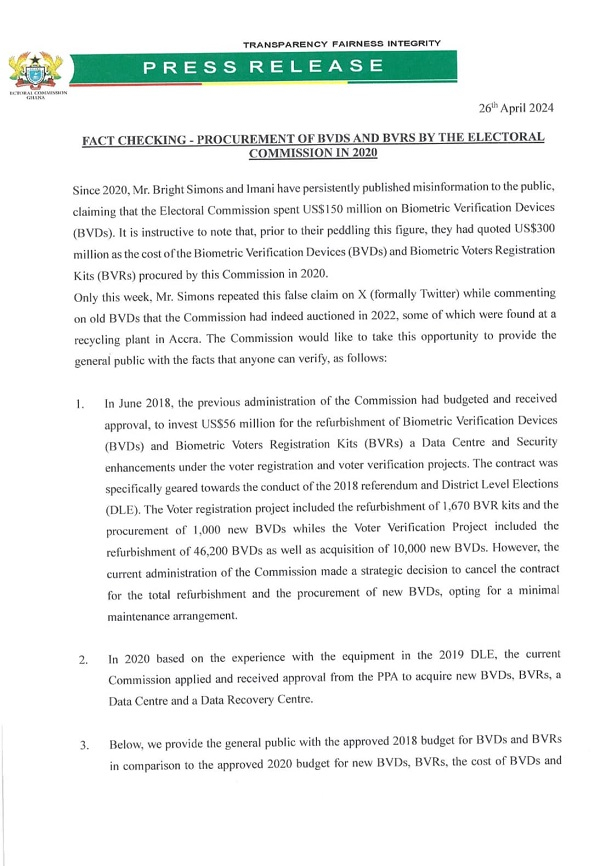
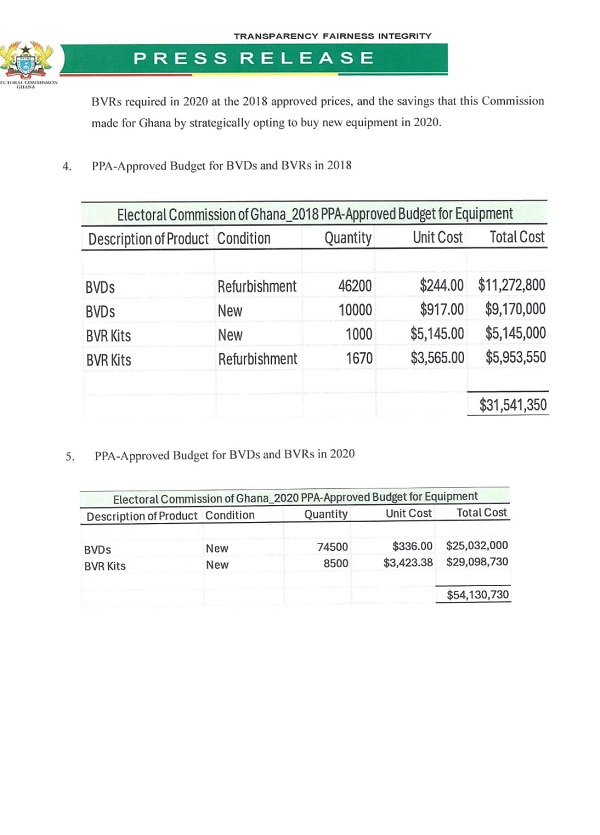
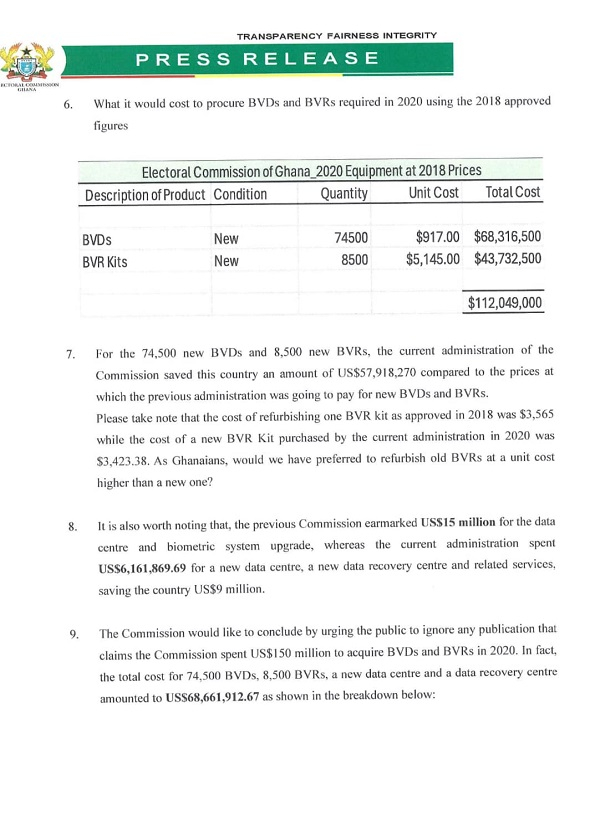
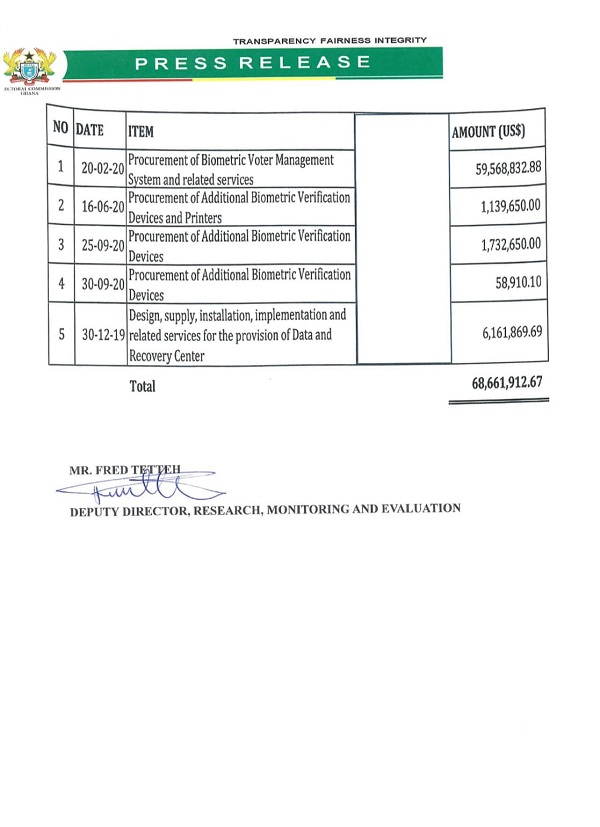
"
SEA
Watch the latest episode of Everyday People on GhanaWeb TV below:
Ghana’s leading digital news platform, GhanaWeb, in conjunction with the Korle-Bu Teaching Hospital, is embarking on an aggressive campaign which is geared towards ensuring that parliament passes comprehensive legislation to guide organ harvesting, organ donation, and organ transplantation in the country.

